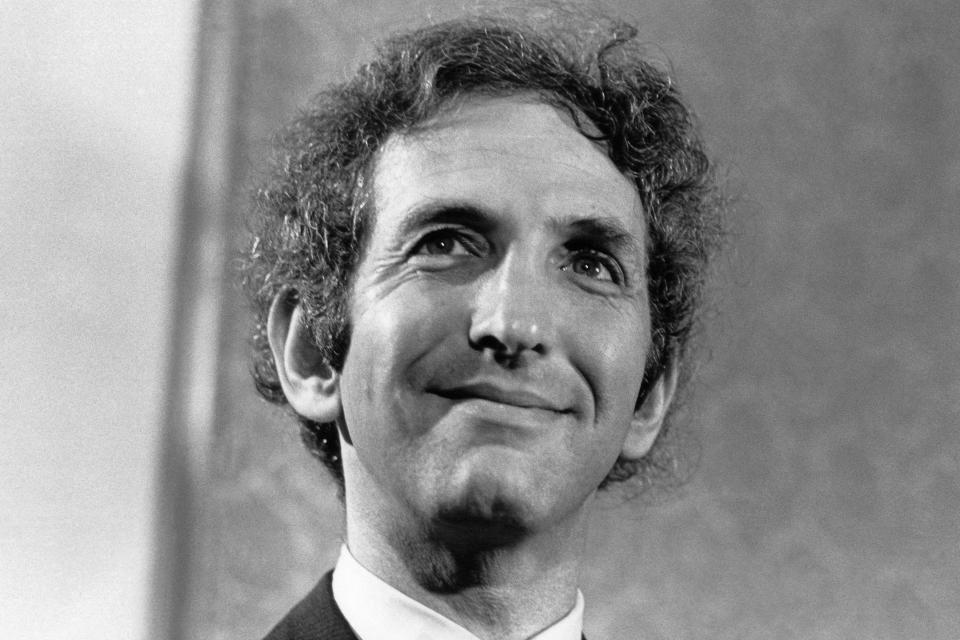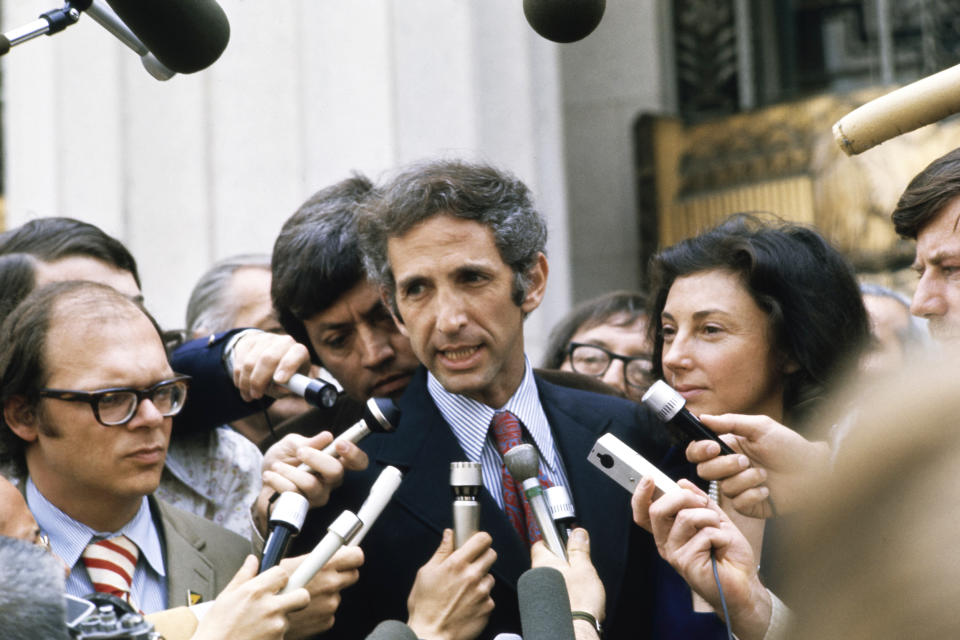Daniel Ellsberg, Pentagon Papers whistleblower, dies at 92
- Oops!Something went wrong.Please try again later.
Daniel Ellsberg, the whistleblower who exposed the U.S. government's lies about the Vietnam War by leaking the Pentagon Papers to some of the nation's top newspapers, has died, his family said in a statement on Friday.
He was 92.
Ellsberg's demise came about four months after he announced on Twitter that he had been diagnosed with "inoperable pancreatic cancer."
"I'm sorry to report to you that my doctors have given me three to six months to live," he wrote on March 2.

Ellsberg's family said in the statement that "he was not in pain, and was surrounded by loving family." And his sense of humor, they said, stayed with him until the very end.
"In his final days, surrounded by so much love from so many people, Daniel joked, 'If I had known dying would be like this, I would have done it sooner'," the statement said.
Ellsberg was working as an analyst for the RAND Corporation in 1969 when he and a colleague named Anthony Russo secretly photocopied a 7,000-page study privately commissioned by the Defense Department which revealed the U.S. government knew early on the Vietnam War could not be won.

Initially, Ellsberg and Russo offered the study to several members of Congress and government officials before deciding to leak it to the newspapers.
Then-President Richard Nixon branded them traitors and tried to stop the publication of the Pentagon Papers, first in The New York Times and then in The Washington Post. But the U.S. Supreme Court in June 1971 sided with the newspapers with a landmark decision barring prior restraint of free expression.
Two days before that momentous decision was handed down, Ellsberg surrendered to the U.S. Attorney's office in Boston.
“I felt that as an American citizen, as a responsible citizen, I could no longer cooperate in concealing this information from the American public," he said. "I did this clearly at my own jeopardy and I am prepared to answer to all the consequences of this decision.”
Ellsberg and Russo were subsequently charged with espionage, theft and conspiracy for the leak. They went on trial in Los Angeles, where the papers had been copied, and Ellsberg faced a maximum of 115 years in prison if convicted.
But a federal judge dismissed the case in 1973, ruling that the government was guilty of misconduct, including an attempt by the White House to find ammunition to discredit Ellsberg by breaking into the office of his Beverly Hills psychiatrist.
Born April 7, 1931, in Chicago, Ellsberg was raised in Detroit and was the son of non-religious Jews who became devout Christian Scientists. He had his first brush with tragedy in 1946 when his mother and sister died in a car crash that happened after his father fell asleep at the wheel. He too had been in the car.

Ellsberg earned an economics degree from Harvard in 1952 and enlisted in the Marines two years later. He returned to Harvard in 1957 after he was discharged as a first lieutenant.
Then, after his first stint at RAND and after earning a Ph.D. in economics at Harvard, Ellsberg in 1964 went to work at the Pentagon under then-Defense Secretary Robert McNamara.
For two years, Ellsberg was stationed in Vietnam where he worked for the State Department and when he returned to RAND in 1967 he began contributing to a top-secret history of the war that had been commissioned by McNamara.
Completed in 1968, it came to be called The Pentagon Papers.
By then, Ellsberg was already growing disenchanted with a war he once supported.
Ellsberg was dubbed "The Most Dangerous Man in America" after his role in releasing The Pentagon Papers was revealed.
In the years that followed, Ellsberg continued to oppose American wars in places like Iraq and Afghanistan and defended other whistleblowers like Edward Snowden and Chelsea Manning. And while he condemned Vladimir Putin's invasion of Ukraine, he also warned it could lead to all-out war with Russia.
"The Russian invasion of Ukraine has made the world far more dangerous, not only in the short run, but in ways that may be irreversible," Ellsberg said in a June 2022 interview. "It is a tragic and criminal attack. We are seeing humanity at its almost worst, but not quite the worst — so far, since 1945 we haven’t seen nuclear war."
This article was originally published on NBCNews.com

